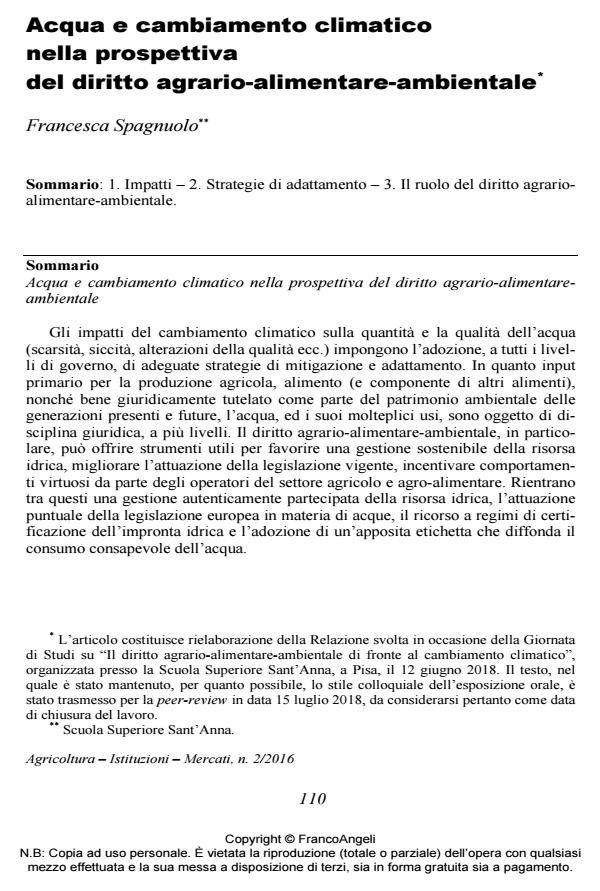Water and climate change: an Agricultural-Food-Environmental Law Perspective
Journal title AGRICOLTURA ISTITUZIONI MERCATI
Author/s Francesca Spagnuolo
Publishing Year 2019 Issue 2016/2
Language Italian Pages 12 P. 110-121 File size 169 KB
DOI 10.3280/AIM2016-002007
DOI is like a bar code for intellectual property: to have more infomation
click here
Below, you can see the article first page
If you want to buy this article in PDF format, you can do it, following the instructions to buy download credits

FrancoAngeli is member of Publishers International Linking Association, Inc (PILA), a not-for-profit association which run the CrossRef service enabling links to and from online scholarly content.
The impacts of climate change on water quantity and quality (including water scarcity, droughts, water quality alterations, etc.) impose the adoption of adequate mitigation and adaptation policies at all levels of government. Water is regulated by law as a primary input in agricultural and food production as well as an envi-ronmental good to be conserved and protected as part of the common heritage of present and future generations. The legal tools offered by Agricultural-Food-Environmental Law can be used to foster sustainable water management, improve law compliance in the water sector, incentivize best practices among farmers and agri-food operators. Inclusive water resource management, compliance with EU water legislation, water footprint assessment and certification, and the adoption of a water efficiency labelling scheme on agri-food products, are all examples of what Agricultural-Food-Environmental can do to encourage adaptation to water-related climate change impacts.
Keywords: Water, climate change, agriculture, food, environment.
- The Food Commons Approach in the EU Agri-food Law Antonio Manzoni, pp.13 (ISBN:978-3-031-64564-8)
Francesca Spagnuolo, Acqua e cambiamento climatico nella prospettiva del diritto agrario-alimentare-ambientale in "AGRICOLTURA ISTITUZIONI MERCATI " 2/2016, pp 110-121, DOI: 10.3280/AIM2016-002007